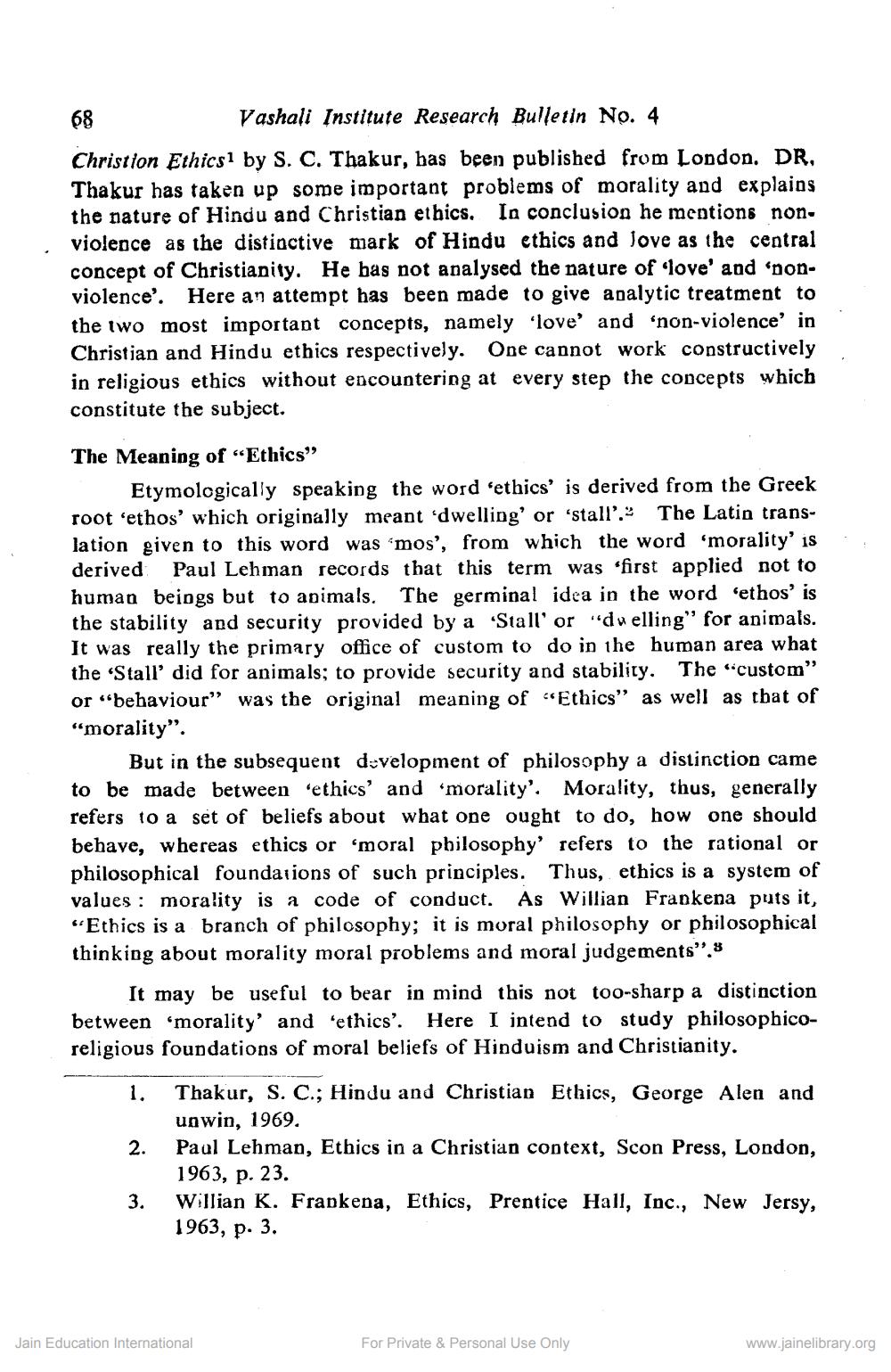________________
68
Vashali Institute Research Bulletin No. 4
Christion Ethics1 by S. C. Thakur, has been published from London. DR. Thakur has taken up some important problems of morality and explains the nature of Hindu and Christian ethics. In conclusion he mentions nonviolence as the distinctive mark of Hindu ethics and Jove as the central concept of Christianity. He has not analysed the nature of 'love' and 'nonviolence'. Here an attempt has been made to give analytic treatment to the two most important concepts, namely 'love' and 'non-violence' in Christian and Hindu ethics respectively. One cannot work constructively in religious ethics without encountering at every step the concepts which constitute the subject.
The Meaning of "Ethics"
Etymologically speaking the word 'ethics' is derived from the Greek root 'ethos' which originally meant 'dwelling' or 'stall'. The Latin translation given to this word was 'mos', from which the word 'morality' is derived Paul Lehman records that this term was 'first applied not to human beings but to animals. The germinal idea in the word 'ethos' is the stability and security provided by a Stall' or "dwelling" for animals. It was really the primary office of custom to do in the human area what the 'Stall' did for animals; to provide security and stability. The "custom" or "behaviour" was the original meaning of "Ethics" as well as that of "morality".
But in the subsequent development of philosophy a distinction came to be made between 'ethics' and 'morality'. Morality, thus, generally refers to a set of beliefs about what one ought to do, how one should behave, whereas ethics or 'moral philosophy' refers to the rational or philosophical foundations of such principles. Thus, ethics is a system of values: morality is a code of conduct. As Willian Frankena puts it, "Ethics is a branch of philosophy; it is moral philosophy or philosophical thinking about morality moral problems and moral judgements","
It may be useful to bear in mind this not too-sharp a distinction between 'morality' and 'ethics'. Here I intend to study philosophicoreligious foundations of moral beliefs of Hinduism and Christianity.
1. Thakur, S. C.; Hindu and Christian Ethics, George Alen and unwin, 1969.
Paul Lehman, Ethics in a Christian context, Scon Press, London, 1963, p. 23.
2.
3.
Willian K. Frankena, Ethics, Prentice Hall, Inc., New Jersy, 1963, p. 3.
Jain Education International
For Private & Personal Use Only
www.jainelibrary.org




